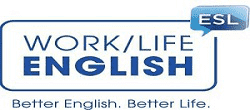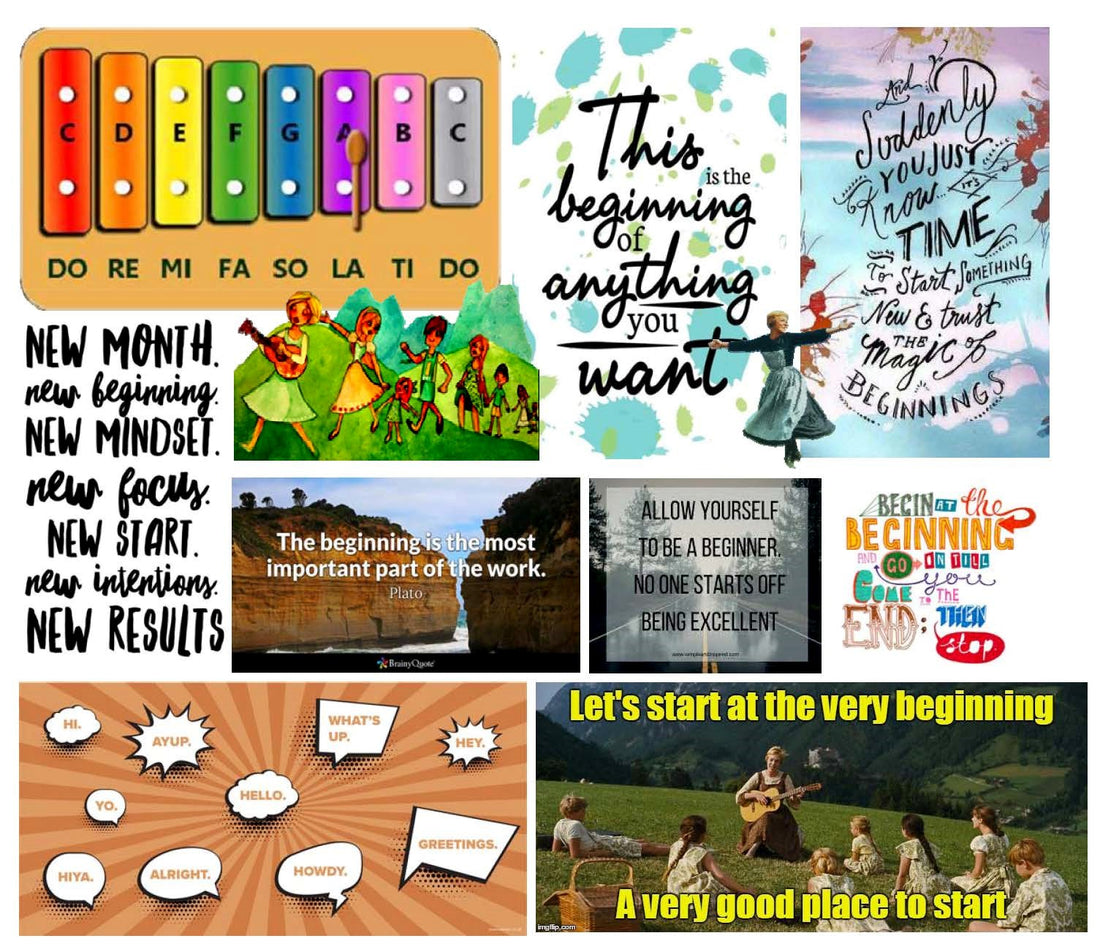Sing the First Lines of a Song from “The Sound of Music."
Let's start at the very beginning
A very good place to start
When you read you begin with ABC
These words are very well-known! Speakers, bloggers, and teachers everywhere use them to begin their presentations on new things and ideas. Here are some “pieces of wisdom” that relate to starting at the very beginning:

Apply This Idea - Start at the Very Beginning - to Learning English.
How well does the idea of “Let's start at the very beginning” apply to English learning? Just think of spoken and written language as “a pyramid of pieces.” The figure below starts at the top and moves from small to large:

In the Pyramid, the smallest units of speech are sounds. The smallest bits of written language are symbols, especially the 26 letters of the English (roman) alphabet a, b, c, d, e, f, g, h, i, j, k, l, m, n, o, p, q, r, s, t, u, v, w, x, y, z.
Sounds and symbols connect in Phonics & Spelling. If you associate sounds with printed letters, you'll be able to begin decoding (reading) words. If you know which letters represent which sounds, you can start to spell. If you use these skills with language that has meaning, you'll learn vocabulary.
Alphabet letters combine into words, which are used in phrases and sentences. Sequences of letters and the sounds they make are the elements of connected, meaningful writing and speech. And that's what you need to use to improve your English.
Compare Starting at the Very Beginning with Starting Somewhere Else.
Some students want to be placed into “levels” of achievement, knowledge, or ability. Perhaps they believe that starting “higher up” saves time, money, and effort. If they begin in the middle, they don't have to repeat, relearn, or reinforce what they think they already know.
Even so, both new and experienced learners can benefit from “starting (again) with the basics.” The idea may mean getting necessary background knowledge or reviewing what's needed to move forward. After all, maintaining, practicing, and improving the fundamentals (“the ABCs”) - is a big part of life. The basics are essential for success in sports, education, work, and achieving mastery in most fields of human endeavor.
Learn to Use the Alphabet.
If you “start at the very beginning” in improving your English, you'll probably focus on its alphabet first. You'll want to recognize, name, sequence, read the sounds of, and write its 26 letters. If you're a beginner, you'll succeed easily and enjoy the process. If you already know some English, you'll reinforce what you already know while naturally building your language skills. You'll see how even the “simplest” bits and pieces can be valuable tools in listening, speaking, reading, and writing well.
The last line in the “Do-Re-Mi Song” makes its main point. Its words are “If you know the notes to sing, you can sing most anything.”

If you use a “substitution drill” technique, you'll come up with true statements like these:
- “If you know the sounds to make, you can say most any word.”
- “If you know the letters to put, you can spell most any phrase.”
- “If you know the words to use, you can make most any point.”
Start at the Very Beginning.
So what can you do first-and second-and next- and after that? And how might you “come to the end” of the process-and then stop? Finally, how can your ending create a new beginning?

Click here to get a stepping-stone by stone diagram of ways to learn the English alphabet.
M-Z. And When You Get to the End, Stop.
But Always Remember . . .
Use Tried-and-True Resources & Materials.
You, your group, or your whole class can progress and have a good time with lessons, activities, and games. We offer comprehensive how-to resources and ready-to-use materials that give you “All You Need to Know & Do in Regard to Teaching & Learning the (English) Alphabet” at www.worklifeenglish.com.
Blog Posts:
- Better English, Better Life! Why English Matters for Work, Life, & Happiness
- So Many Ways to Learn English: How to Decide What’s Best for You
- Ask Elaine: "Now That I Really Want to Learn Language, How Can I Do It?"
Related External Resources:
About Work/Life EnglishWork/Life English is an experienced provider of language content to advance the work and lives of native English and English as a Second Language (ESL) speakers. Get information and materials to improve your English learning and teaching skills. Lessons, activities, and games cover Phonics & Spelling, Vocabulary, Grammar, Listening & Speaking, Reading & Writing, and Content & Culture-and there are helpful Resources. For more information, visit: www.worklifeenglish.com.

